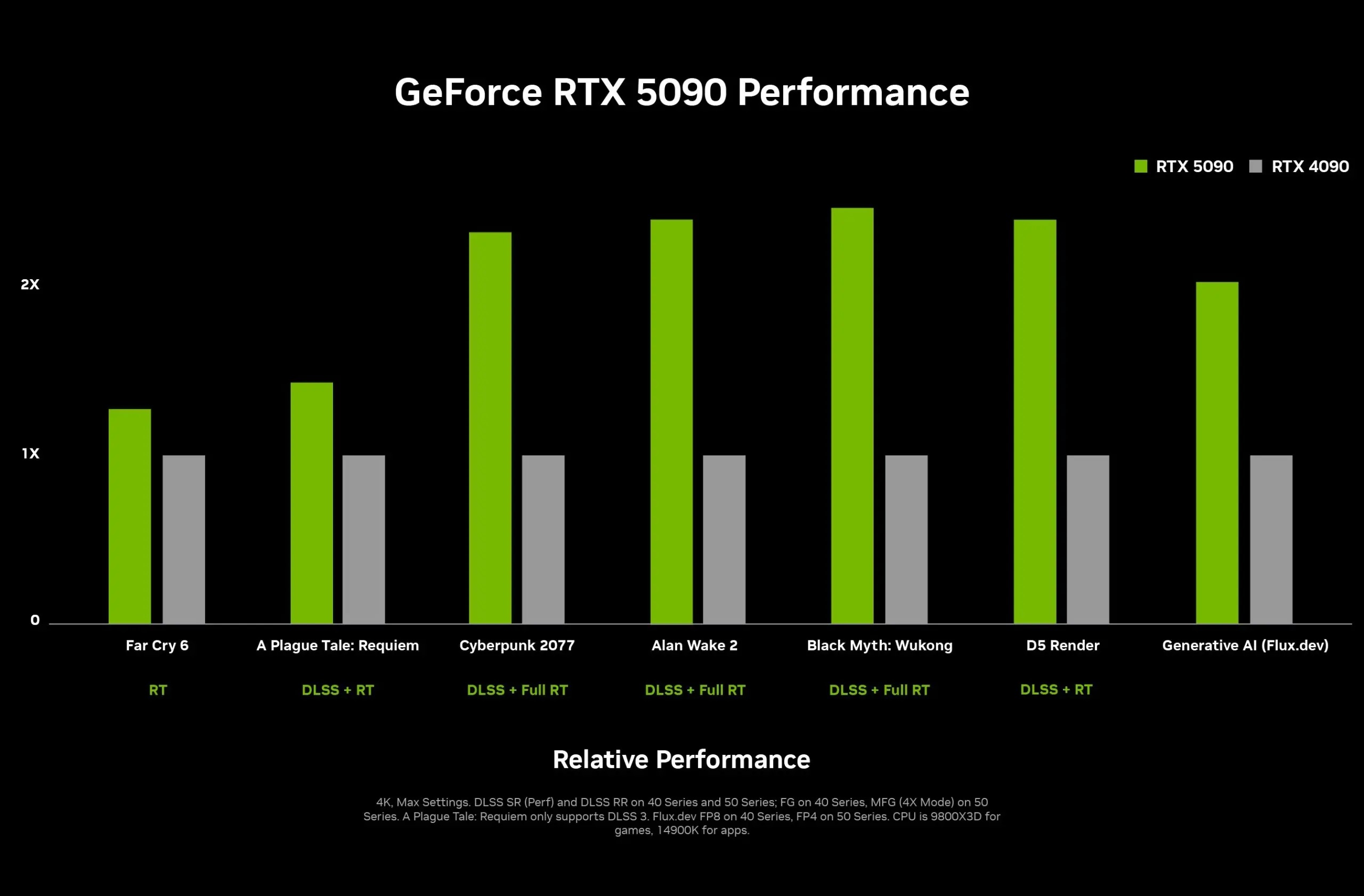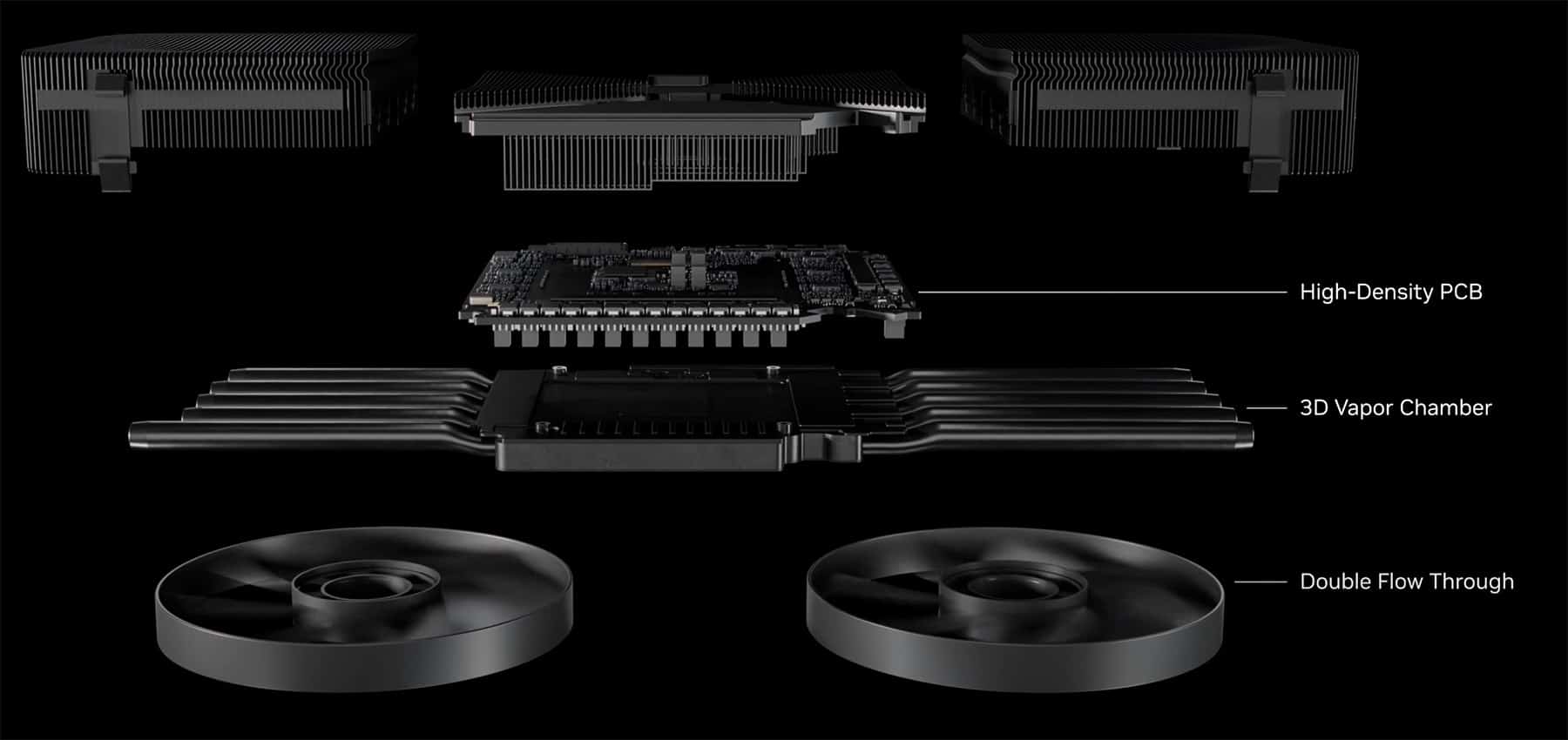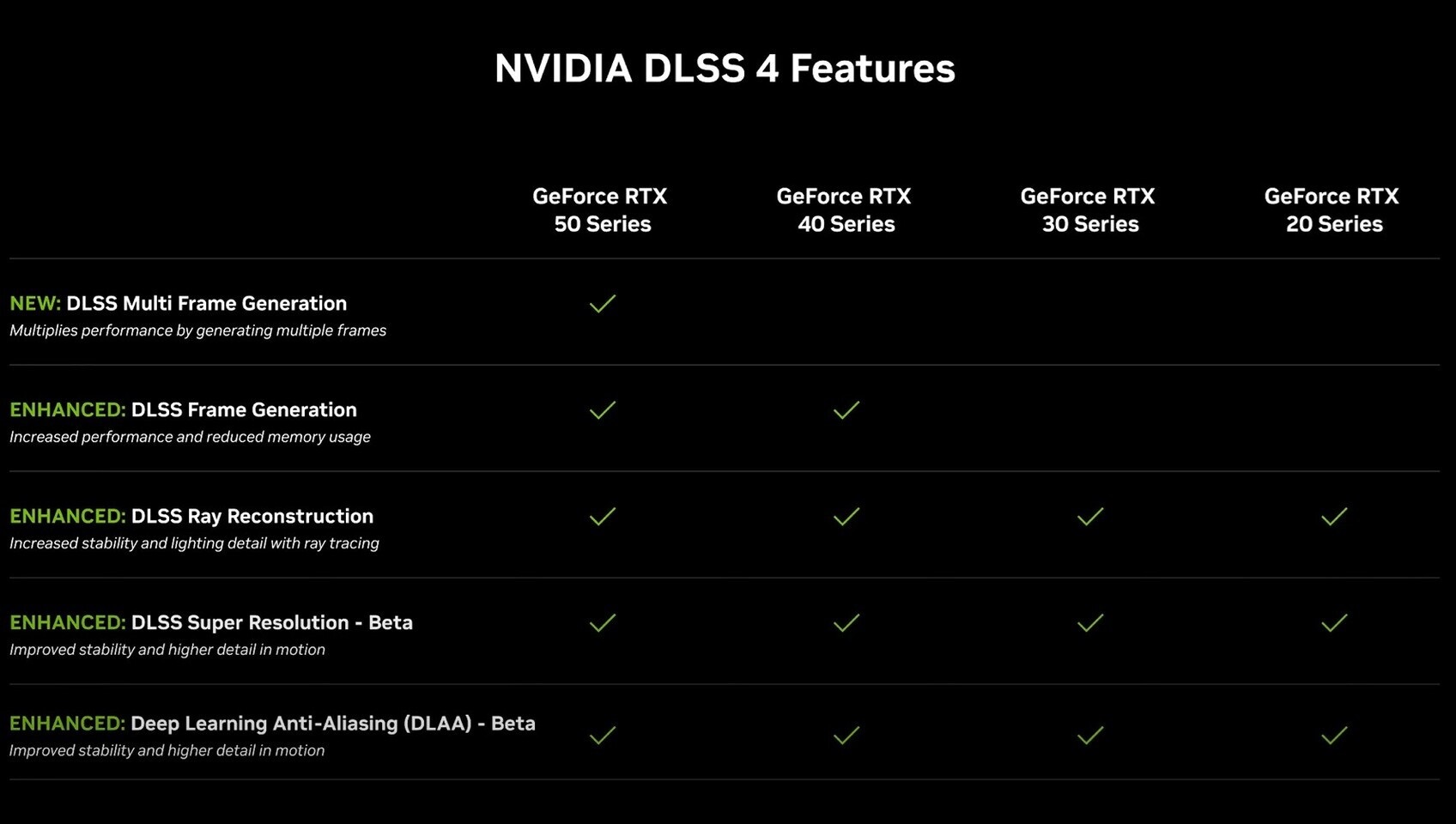Nvidia’s RTX 5090 sets a new performance benchmark, surpassing the RTX 4090. However, its $2000 price tag makes the $1000 RTX 4080 Super seem like a bargain. Let’s explore what justifies the premium!
Comparison Table
| Technical Specs | NVIDIA RTX 5090 | NVIDIA RTX 4080 Super |
|---|---|---|
| Process Node | Blackwell | Ada Lovelace |
| Architecture | TSMC 4nm | TSMC 4nm |
| Transistors (Billion) | 92 | 45.9 |
| SMs | 170 | 80 |
| GPU Shaders | 21760 | 10240 |
| Tensor Cores | 680 | 320 |
| RT Cores | 170 | 80 |
| Boost Clock (MHz) | 2407 | 2550 |
| VRAM Speed (Gbps) | 28 | 23 |
| VRAM (GB) | 32 | 16 |
| VRAM Bus Width | 512 | 256 |
| Texture Mapping Units | 680 | 320 |
| TFLOPS FP32 (Boost) | 104.8 | 52.2 |
| Bandwidth (GB/s) | 1792 | 736 |
| TBP (watts) | 575 | 320 |
| Launch Date | Jan 2025 | Jan 2024 |
| MSRP | $1999 | $999 |
Technical Comparison

Sadly, at the time of writing, the RTX 5090 has not come out yet, but we have some indication of the performance in the specs of this card. The following sections will compare it against the RTX 4080 Super in the areas where we see the most improvement.
GPU Cores
Nvidia has packed 111% more CUDA Cores in top-line Blackwell GPU than the RTX 4080 Super. Though this might not translate exactly into real-world performance, it is a very promising hardware difference, the results of which we are very excited to see.
This improvement in overall processing units will translate to all of the Nvidia goodies as well, including similar increases in the number of Tensor and RT cores, both delegated to their own fields of expertise.
Clock Speeds

The RTX 4080 Super wins when measuring the raw difference in clock speeds, with the boost clocks on the older card being around 6% higher than those on the RTX 4090. However, this discrepancy will not significantly affect gaming performance when considering the abundance of GPU cores on the RTX 5090.
The RTX 5090 is also a lot smaller than its predecessor, which makes us think that OEM cards with beefier coolers might be able to exceed this slight disadvantage in clock speeds by a good margin.
VRAM
The RTX 4080 Super uses fast GDDR6X memory with 256 bits with a 16 gigabyte buffer. With the competition AMD has been putting up with stuffing as much RAM as they could in their mid-range cards, the numbers that the RTX 4080 Super put up in terms of memory seemed a little short of its weight class.
The RTX 5090 massively rectifies this by offering a whopping 32 gigabytes of GDDR7 memory with a 512-bit bus, clocked over 50% higher than the VRAM we saw with the RTX 4080 Super. This will remove VRAM bottlenecking for anyone buying this top-of-the-line card for years.
Bells And Whistles

Nvidia introduced its latest DLSS 4.0 technology alongside the Blackwell series of graphics cards. While some features of DLSS 4.0 will be available across all RTX cards, the highly anticipated multi-frame generation feature will remain exclusive to the new Blackwell lineup, meaning that the RTX 4080 Super will not benefit from this new feature.
However, some features like improved Ray Reconstruction, enhanced DLSS Super Resolution, and Deep Learning Anti-Aliasing (DLAA) will be available to all the RTX cards in Nvidia’s lineup, which might even give a significant boost to the 4080 Super.
The latency brought up with the new Multi-Frame Generation feature would have been an issue if Nvidia had not innovated on its Reflex tech besides it. They have debuted Nvidia Reflex 2, which will increase latency reduction twofold compared to this technology’s previous iteration.
Nvidia has been focusing on the software features more and more ever since the initial release of DLSS, something that consumers were initially not very happy with. However, the features that have been released in the last few years have given significant boosts to the performance of these cards and are met alongside better hardware, albeit with the consumers covering the RnD costs of these new innovations.
Community feedback plays a huge role in determining the trajectory of products in the future, even for companies as large as Nvidia. We would love it if you would let us know your thoughts on the new Blackwell cards and Nvidia’s overall GPU strategy in the comments below!
Thank you! Please share your positive feedback. 🔋
How could we improve this post? Please Help us. 😔
[Comparisons Expert]
Shehryar Khan, a seasoned PC hardware expert, brings over three years of extensive experience and a deep passion for the world of technology. With a love for building PCs and a genuine enthusiasm for exploring the latest advancements in components, his expertise shines through his work and dedication towards this field. Currently, Shehryar is rocking a custom loop setup for his built.
Get In Touch: shehryar@tech4gamers.com




